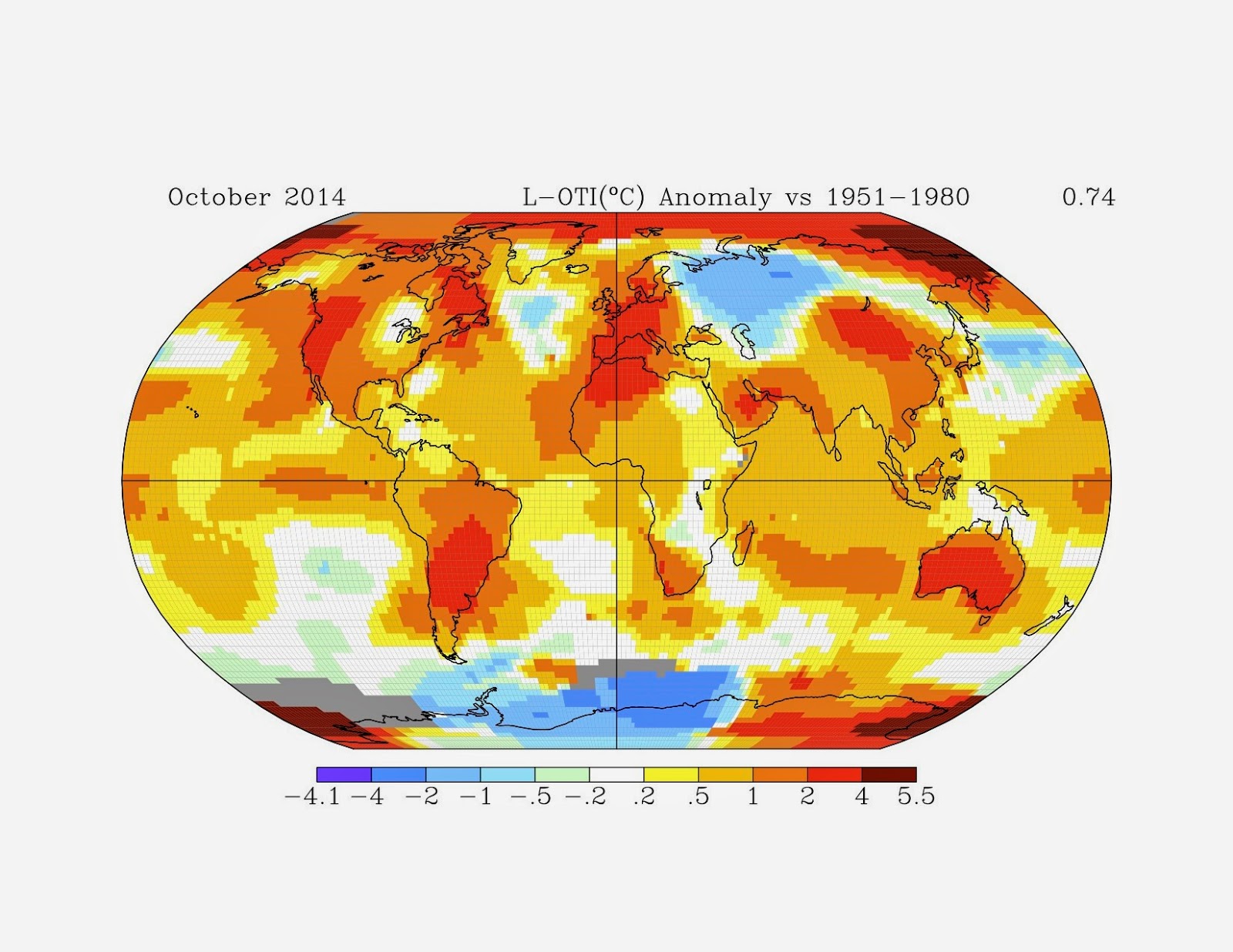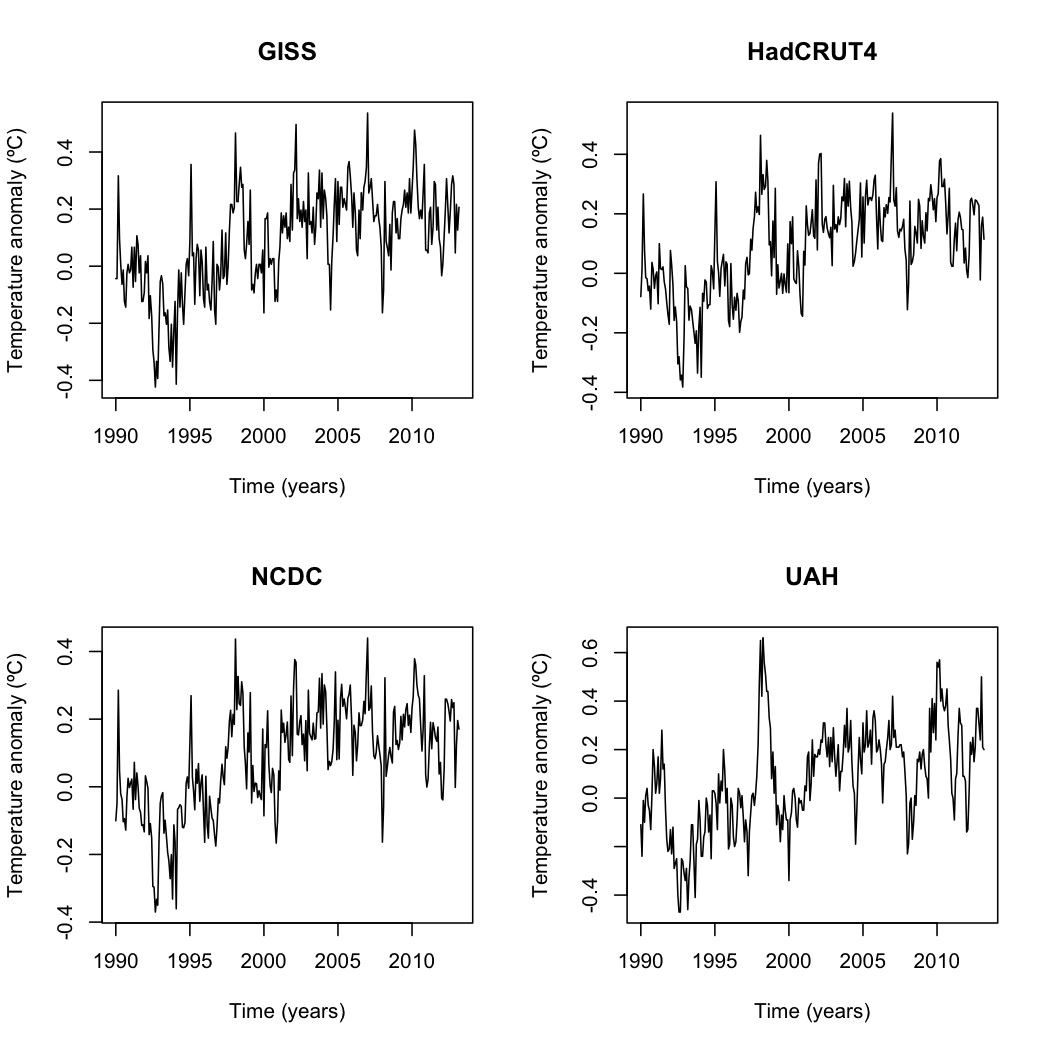First, an introduction. This blog will cover topics in ecology and environmental science. That is, after all, my background. I hold Bachelor's and Master's degrees in Biology, with emphasis on ecology, and am completing a Ph.D. in Environmental Science. My research focus covers forest ecology but my training runs the gamut from calculating the spread and fate of pollutants in groundwater to creating watershed models to population ecology to ecosystem cycles. My teaching experience is on the college level, having taught courses ranging from general biology to physiology to ecology, environmental science, and evolution. One of the first questions I'm usually asked when people find out my background is "Is global warming real?" My answer is "Yes, it's real–and it's caused by humans." In this post, I'll explore the data that shows that the Earth is warming. I'll get into the data why we're the cause in subsequent posts.







